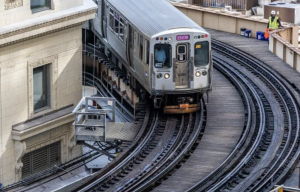Local high school students on impeachment
The second impeachment trial of former President Donald Trump concluded Saturday, with Trump once again being acquitted of the charges leveled against him.
The House of Representatives had impeached Trump on charges of “incitement of insurrection” following his comments before the riots at the Capitol on Jan. 6.
While the Senate did not have 67 members vote to convict the former president, the vote was still historic because seven Republicans voted to convict Trump. That was the most people from a president’s own party to vote for “guilty” in such a proceeding.
Still, the conviction vote failed 57-43, with Republicans Bill Cassiday of Louisiana, Mitt Romney of Utah, Richard Burr of North Carolina, Susan Collins of Maine, Lisa Murkowski of Alaska, Ben Sasse of Nebraska and Patrick Toomey of Pennsylvania joining Democrats.
In addition to the many historic and political ramifications of the trial, it also served as an excellent learning opportunity for Monroe County high school students, many of whom have now been in school for two impeachments.
Bobby Lee, a senior at Waterloo High School, said having the opportunity to learn about and discuss such a hot-button issue in school has been “thrilling.”
“It is incredible to know that we are currently living through what will be in history textbooks in the future,” Lee said. “Additionally, I feel that it helped expand political discourse around the school, which is always a positive. Students in high school should know what is happening and be talking about their thoughts on the current political landscape, and it was great that it happened.”
Students discussed the impeachment in social studies classes like civics, government and current events.
During Trump’s first impeachment, which lasted from December 2019 to February 2020, students learned in detail about the process of impeachment and arguments for and against impeaching Trump.
That latter element struck a chord with the students who spoke with the Republic-Times.
“It was interesting. I really like having political discussions. Our teacher (Robert Hawley), he doesn’t take sides and is really good at being impartial and letting students talk it out,” Valmeyer High School junior Lucas Schilling said.
Columbia High School student Kolin Ohlendorf echoed that sentiment when talking about what he learned from CHS teacher Mark Sandstrom.
“The biggest thing for me was how both sides view the situation,” Ohlendorf said. “Mr. Sandstrom did a great job of showing both sides. I’m not one to say that I’m wrong, but it really showed me how valid the other side’s view was.”
Despite students in each of the county’s high schools covering the same topics related to impeachment, they took away different lessons.
“The thing that I found most interesting about it, and nothing against my parents, but I don’t think my parents would know most of that stuff,” Ohlendorf said, referring to both the process and arguments. “I think that says something about our country right now and how our country’s divided.”
For Schilling, he came to believe impeachment efforts are “just a misuse of tax dollars.”
“Time and time again, we can see House Democrats pushing for impeachment, knowing they don’t have the two-thirds needed to convict,” he reasoned. “They shouldn’t be spending time and money impeaching somebody, even now who isn’t in office, when we have underfunded schools, homeless veterans and an almost $28 trillion national debt.”
For Gibault Catholic High School student Brock Murphy, he said discussing the issue in class taught him “how to discuss a controversial topic with others without coming off as rude or abrasive.”
“It is a critically important life skill to learn to stay respectful of others, and our teachers have taught us that in a way that is as beneficial to the people we will interact with in our future as it is for ourselves,” Murphy said.
This time, students refreshed their knowledge of the impeachment process and again focused on arguments made for and against impeaching Trump – including the legality and appropriateness of impeaching a president who is no longer in office.
With this being the first time an impeachment trial has been held after a president’s term ended, Ohlendorf said that added a new wrinkle to lessons and discussions.
Having learned so much about impeachment this time, Schilling said it has been easier to understand this process, though his views have not changed.
Based on his previous experience, Lee said he now sees impeachment as at least somewhat futile.
“I believe impeachment and conviction are too hard to pass,” he explained. “In our modern political era, it is almost impossible to get 67 Senators to agree on an issue of such importance, so it often leads impeachment trials to be pointless partisan displays. I have also learned that no matter how many politicians tell us that they will reach across the aisle, it is rarely done.”
Ohlendorf said he learned that some people are entrenched in their beliefs through his class discussions, while others are open to changing their minds.
“Some people, they’re just unwilling to change their views or look at the other side. It taught me personally how to understand the other side and work toward getting something done, which in politics is not always the case,” he said.
Moving forward, all three students said they would remember the lessons they learned about partisanship and division as they consider political topics.
“This situation has taught me what hurts Americans the most is being polarized and partisan, being either one way this side or that side. When we waste all this money on things that are going to fail, it really hurts our communities,” Schilling said.
Ohlendorf said he is still learning from the two impeachment proceedings, which he described as eye-opening.
“It’s not necessarily about the right answer. It’s more about the best answer. With politics right now, there’s probably not a right answer,” he said. “There’s two sides, and you just have to pick the best one for our country, for our society, and just go with it. You can’t always be looking back.”
Gibault student Katelyn Kreps also said this experience has promoted her to learn more.
“I became more interested with what are all the restrictions that make it possible for someone to be impeached,” she said. “I think that in the near future, I would like to gain more knowledge about our political system and have more discussions like we’ve been doing. “
In Lee’s case, he is planning to work in “law and policy,” and covering the two Trump impeachments in class cemented that plan.
“We often forget that federal actions have really big consequences on our culture,” he said. “I believe these impeachments will help show people that we need to always expect more of our leaders, no matter what side they are on and that the people deserve transparency.”






